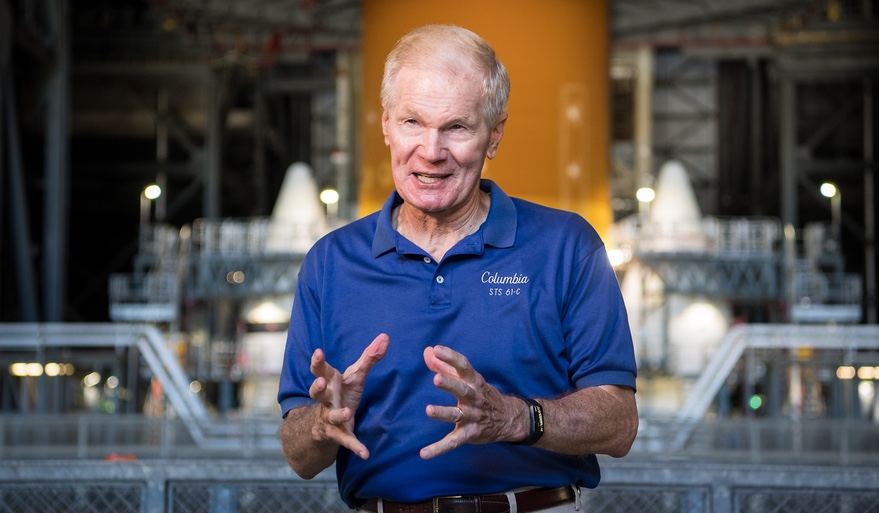ORLANDO — NASA Administrator Bill Nelson says he remains confident that Congress will provide NASA with additional funding so it can select a second lunar lander developer but declined to comment on Blue Origin’s proposal to lower its costs to enable a contract.
Speaking at a press conference at the Kennedy Space Center July 29 about the upcoming launch of Boeing’s CST-100 Starliner spacecraft on its second uncrewed test flight, Nelson said the commercial crew program provided an argument for selecting a second company in its Human Landing System (HLS) program.
“What if we hadn’t had two competitors, and what if it had only been Boeing?” he asked about the commercial crew program. Boeing has yet to fly people on its vehicle, while SpaceX, which made its first crewed launch more than a year ago, is currently in the middle of its second operational mission to the International Space Station. “Right there, that’s enough demonstration for you of why we want competition.”
He then said that NASA wants competition in the HLS program, despite awarding only one contract in April, to SpaceX, citing a lack of funding. “I’m very optimistic at this point that Congress is going to give us some additional funds that will allow us to go forward with that competition,” he said.
That additional funding has, so far, not been forthcoming from Congress. While Nelson told both House and Senate committees that NASA was looking for more than $5 billion for HLS, perhaps as part of a jobs and infrastructure bill, a House appropriations bill for fiscal year 2022 increases NASA’s budget for HLS by just $150 million, to $1.345 billion. An infrastructure bill currently being considered by the Senate does not appear to include any funding for HLS.
In a July 26 open letter to Nelson, Jeff Bezos, founder of Blue Origin, proposed waiving up to $2 billion in fees over three years and carrying out an additional demonstration mission at no cost to NASA if the agency gave the company a second HLS award. Blue Origin’s original bid for the HLS program was nearly $6 billion, more than double SpaceX’s winning $2.9 billion award.
That offer came as the Government Accountability Office continues to review protests filed by Blue Origin and the other HLS bidder, Dynetics, in April. The GAO has an Aug. 4 deadline to issue a ruling, and NASA, citing that review, has been quiet about its plans for the HLS program.
Nelson cited the GAO protest when asked how NASA would consider Bezos’s proposal. “I want you to ask me that question next week,” he said, after the GAO’s ruling.
Blue Origin’s HLS proposal was as the leader of its so-called “National Team” that includes Draper, Lockheed Martin and Northrop Grumman. During a July 29 earnings call, Northrop executives sidestepped a question about how Blue Origin’s proposal would affect its role in the HLS program.
“When we lead an effort, we will choose to make sizable investment to protect that program and increase our probability of win over its life because of the advantage that you have got when you are the leader, the prime-only effort. And that’s exactly what Blue Origin is doing,” Kathy Warden, president and chief executive of Northrop Grumman, said.
“In the case of Northrop Grumman, we have to do that similar business case assessment and we have come to different answers in terms of what our contribution should be to the overall program financials,” she added. “In any good partnership that you lay out the clear expectations of each party but also the benefits to be gained by each party and aligning of expectations for financial investment.”
